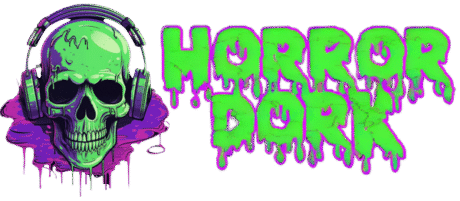Editor’s Note: This article discusses real criminal acts and public controversy surrounding filmmaker Victor Salva. It does not condone or excuse those actions. Reader discretion is advised.
Thinking for Yourself in the Age of Outrage
Sometimes it feels like the scariest part of being a horror fan isn’t what’s on screen, but what happens when you admit you liked the wrong thing.
You know what I’m talking about. You mention a movie you enjoy, and before you can even explain why, someone’s in your comments acting like you confessed to a crime. There’s no discussion, no nuance, just judgment. The same community that prides itself on open mindedness can turn puritanical in seconds.
And that brings me to Jeepers Creepers.
I’ve always liked the first two films, because they’re creepy, beautifully shot, and soaked in that grimy, small town Americana horror I love. But every time I bring them up, someone inevitably fires back: “How can you support that movie? Don’t you know who directed it?”
Yeah, I do.
Knowing the Facts vs. Being Told What to Think
In 1988, during the filming of Clownhouse, writer-director Victor Salva was convicted of sexual abuse of a 12-year-old actor and possession of illegal recordings related to that crime.
He pleaded guilty, was sentenced to three years, and served about fifteen months before he was paroled.
It’s a horrific thing to even write, and nothing, not talent, not time, not apologies, ever erases it.
What complicates things is how long the truth stayed buried. In 1995, Salva directed Powder for Disney, and though the story briefly resurfaced, it faded again. By 2001, when Jeepers Creepers hit theaters, most fans (and even some cast members) had no idea about his past. It wasn’t until 2015, when the #MeToo era reignited conversations about accountability, that the old wound reopened and, thankfully, it hasn’t closed since.
That’s when the internet decided that liking anything Salva ever touched meant you were suspect, ignorant, or worse.
But here’s where I draw the line; knowledge and control are not the same thing.
It’s one thing to know the facts and to understand who made the film and what they did. It’s another to be told you’re not allowed to process that knowledge in your own way.
Why It’s Okay to Feel Conflicted
I’m not defending Salva. I’m defending thought.
Because here’s the truth: you can despise what the man did and still appreciate the hundreds of people who poured their work into Jeepers Creepers. You can enjoy the creature design, the sound, the dread, the performances and still acknowledge that a predator was behind the camera.
That moral dissonance doesn’t make you a bad person. It makes you conscious.
You’re not excusing evil, you’re recognizing complexity. You’re separating the work from the man precisely because you refuse to let him take the art away from everyone else who built it.
Selective Outrage and the Hypocrisy Problem
Let’s be honest: outrage in pop culture isn’t consistent. It’s selective.
People still stream Rosemary’s Baby, Repulsion, and The Ninth Gate which are all directed by Roman Polanski, a man who fled the United States after pleading guilty to statutory rape. He never served his sentence.
Meanwhile, Salva did serve time, is still a registered offender, and was blacklisted by most studios. Yet if you admit you’ve seen Jeepers Creepers 3, some fans act like you should be burned at the stake.
I’m not saying Salva deserves sympathy or a comeback, because he doesn’t. But if we’re going to talk about accountability, it has to apply across the board. Otherwise, it’s not morality; it’s mob rule.
The Freedom to Think
At the end of the day, horror is about confrontation. It’s about looking at what scares or disgusts us and saying, “I want to understand this.” That’s why I love the genre, it invites us to wrestle with things polite society tries to bury.
So no, I won’t shame someone for watching a film they already loved before they knew the backstory. And I won’t apologize for wanting to talk about art, even when the artist makes me sick.
Because horror has always been about choice, who lives, who dies, who fights back. Maybe the real horror is realizing that freedom of choice is dying in the comment sections of a Reddit post.
So think for yourself. Learn the facts. Respect victims. But don’t hand your moral compass to anyone else, not to me, not to Twitter, not to the mob.
Because I’d rather face the monster than let someone else tell me what it looks like.
